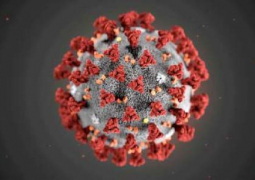
Jabang has disclosed that exposure to asbestos and its related containers are a threat to human and animal health, noting that accidental releases from the distribution, consumption and disposal of chemicals may permanently damage soil, water and air. Chemicals are very important substances in our various activities in life, he said, but, however, warned that they also pose certain risks to our health and the environment.
“As a vital component of sustainable development, the Government of The Gambia has shown commitment to the protection of the environment, and has collaborated with development partners such as GEF and UNEP in the implementation of various Multilateral Environment Agreements (MEAs) such as those dealing with the sustainable and sound management of chemicals and waste. Chemicals are important determinants for sustainable development, sound environmental health and quality of life. While the use of chemicals in all human activities (e.g. agriculture, health, energy production, manufacture, services and residential) contributes to improving the quality of life, it also raises concerns about its harmful effects on workers, consumers, the environment and society at large through exposure.” Manager Jabang pointed out.
The Gambia is party to the Stockholm Convention which is a legally binding international instrument, designed to lead to gradual decrease of the presence of Persistent Organic Pollutants (POPs) in the environment, Jabang disclosed, warning that POPs are toxicchemicals that adversely affect human health and the environment around the world because they can be transported by wind and water. He said most POPs generated in one country can affect people and wildlife far from where they are used and released.
This means they persist for long periods of time in the environment and can accumulate and pass from one species to the next through the food chain.
According to NEA`s Environment Quality Manager, The Gambia and UNEP Special Program is implementing the project as part of the implementation of the Stockholm Convention, the Basel Convention, the Rotterdam Convention, the Minamata Convention and SAICM. The Gambia has ratified all the aforementioned conventions with the ultimate aim to protect human health and the environment, and has recognised the need towards the development of an institutional framework for the sound management of chemicals and waste to help enhance implementation.
Bai Bittaye, programme officer for Environment Quality, posited that the objective of the Special Programme is to support country-driven institutional strengthening at the national level, in the context of an integrated approach to address the financing of the sound management of chemicals and wastes, taking into account the national development strategies, plans and priorities of each country, to increase sustainable public institutional capacity for the sound management of chemicals and wastes throughout their life cycle.
Institutional strengthening under the Special Programme, he said facilitates and enables the implementation of the chemical convention. He revealed that some of the expected outcomes of institutional strengthening through the special programme are to develop and monitor the implementation of national policies, strategies, programmes and legislation for the sound management of chemicals and wastes; promote the adoption, monitoring and enforcement of legislation and regulatory frameworks for the sound managementof chemicals and wastes.
It also helps to promote the mainstreaming of the sound management of chemicals and wastes into national development plans, national budgets, policies, legislation and implementation frameworks at all levels, including addressing gaps and avoiding duplication.
As part of activities of the project, he informed participants that they are gathered to be trained as enumerators or data collectors for the inventory on asbestos and Asbestos Containing Materials (ACMs) countrywide and the results of the inventory would be used as baseline information to develop a national asbestos policy as well as a Regulation to control its use.
The Chairman of the training Lamin Jaiteh encouraged participants to use the opportunity and take the training seriously as its outcome would determine how effective they would be in the field. He finally challenged all participants to demonstrate maximum commitments towards meeting the national obligations in the implementation of the MEAs to trigger the attainment of sustainable environment for all Gambians.




